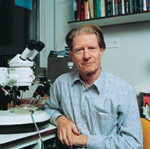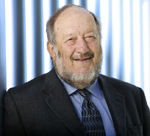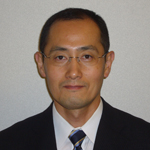Stem cell scientists to be honored with 38th Rosenstiel Award Thursday
Recipients are pioneers in reprogramming adult cells
 The 2009 Rosenstiel Award for Distinguished Work in Basic Medical Science will be awarded to three pioneers in stem cell research. Drs. John B. Gurdon, Irving L. Weissman, and Shinya Yamanaka have been pioneers in studying stem cells and the reprogramming of highly differentiated adult cells into pluripotent cells capable of directing differentiation from a single cell to an adult animal.
The 2009 Rosenstiel Award for Distinguished Work in Basic Medical Science will be awarded to three pioneers in stem cell research. Drs. John B. Gurdon, Irving L. Weissman, and Shinya Yamanaka have been pioneers in studying stem cells and the reprogramming of highly differentiated adult cells into pluripotent cells capable of directing differentiation from a single cell to an adult animal.
The awards will be given March 26 in a private reception, following a free public symposium entitled "Generation of Pluripotent Stem Cells." All three winners will present short lectures in the Gerstenzang Science Library, room 123. Refreshments will be served before the symposium starts at 3 p.m.
Sir John B. Gurdon is emeritus professor of zoology at the Gurdon Institute, Cambridge University, in the UK. In 1962 he made the stunning observation that it was possible to take a differentiated adult cell from a frog and to re-set its genetic program so that the reprogrammed nucleus could be implanted in an enucleated egg and direct the development of tadpoles. Later he showed that differentiated cell nuclei could give rise to fertile adult frogs. His work established the  concept of animal cloning, which has now been successfully carried out with sheep and a number of other mammals.
concept of animal cloning, which has now been successfully carried out with sheep and a number of other mammals.
Dr. Irving L. Weissman is professor of pathology and developmental biology at the Stanford University School of Medicine, where he is director of the Institute of Stem Cell Biology and Regenerative Medicine. In 1988 he first identified and isolated the blood-forming stem cells from mice and went on to define the stages of development between the stem cells and differentiated cells of the immune system. He was the first to appreciate the therapeutic potential of stem cell therapy and has pioneered its development. His laboratory has also identified human stem cells including human leukemia stem cells that have helped to form the concept of cancer stem cells.
Dr. Shinya Yamanaka is professor at the Institute for Frontier Medical Sciences in Kyoto University, Kyoto, Japan as well as professor of anatomy at the University of California, San Francisco and senior investigator at the Gladstone Institute of Cardiovacular Disease, in San Francisco. Dr. Yamanaka defined a specific set of genetic changes that could convert adult  skin cells of the mouse into cells strikingly similar to embryonic stem cells, capable of development into a mouse. His demonstration that the expression of four master regulatory genes was sufficient to cause the reprogramming of adult cells has opened up many possibilities for human stem cell therapies.
skin cells of the mouse into cells strikingly similar to embryonic stem cells, capable of development into a mouse. His demonstration that the expression of four master regulatory genes was sufficient to cause the reprogramming of adult cells has opened up many possibilities for human stem cell therapies.
In 1971, the Lewis S. Rosenstiel Award for Distinguished Work in Basic Medical Research was established as an expression of the conviction that educational institutions have an important role to play in the encouragement and development of basic science as it applies to medicine.
Medals are presented annually at Brandeis University on the basis of recommendations of a panel of outstanding scientists selected by the Rosenstiel Basic Medical Sciences Research Center. Awards are given to scientists for recent discoveries of particular originality and importance to basic medical research. A $30,000 prize and a medallion accompanies each award.
Since its inception, Brandeis University has placed great emphasis on basic science and its relationship to medicine. With the formation of the Rosenstiel Basic Medical Sciences Research Center, made possible by the generosity of Lewis S. Rosenstiel in 1968, research in basic medical science has been significantly expanded. These awards are viewed as a means of extending the Center's support beyond the campus community.





